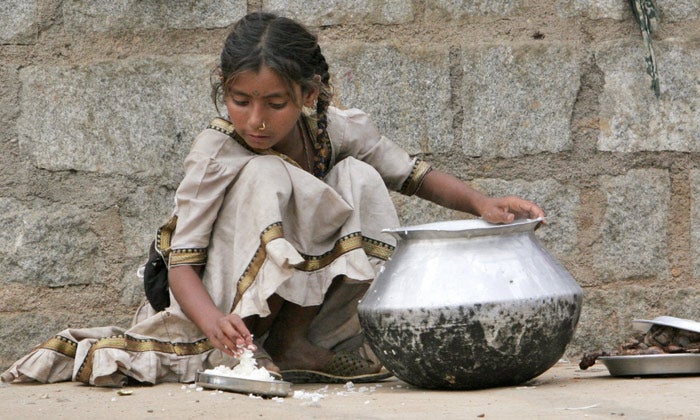Indian families offered cash to stop abortion of girl foetuses

Your support helps us to tell the story
From reproductive rights to climate change to Big Tech, The Independent is on the ground when the story is developing. Whether it's investigating the financials of Elon Musk's pro-Trump PAC or producing our latest documentary, 'The A Word', which shines a light on the American women fighting for reproductive rights, we know how important it is to parse out the facts from the messaging.
At such a critical moment in US history, we need reporters on the ground. Your donation allows us to keep sending journalists to speak to both sides of the story.
The Independent is trusted by Americans across the entire political spectrum. And unlike many other quality news outlets, we choose not to lock Americans out of our reporting and analysis with paywalls. We believe quality journalism should be available to everyone, paid for by those who can afford it.
Your support makes all the difference.India has launched a dramatic initiative to stop the widespread practice of poor families aborting female foetuses by offering cash incentives for them to give birth to the girls and then bring them up.
Families can expect to earn around £1,500 per girl under a government scheme announced this week.
In many parts of India, especially in remote and rural areas, male babies have long been the preferred child of expectant parents. Such is the perceived cost of marrying off a daughter and the contrasting anticipated benefits of having a male child that millions of daughters are often killed before they are born.
The most recent national census suggests the country's gender ratio is 933 females to 1,000 males but in some villages in states such as Uttar Pradesh, the difference is far greater. A recent study published in The Lancet medical journal estimated that around 10 million female foetuses may have been aborted in India over the past 20 years. The new government scheme is designed to end such practices.
"We will pay the money in stages and monitor how they are brought up," India's Women and Child Development Minister, Renuka Chowdhury, told reporters in Delhi this week.
In India, daughters have long been discriminated against for cultural and financial reasons, with families comparing the estimated income a male breadwinner might earn compared to that of a woman. Added to that is a woman's dowry cost that remains part of the marriage tradition in many parts of the country.
The practice has grown with the ease of access to electronic sex determination tests that are routinely made available to expectant couples in the West. Such is the scale of the problem that for more than a decade, the practice of pre-natal sex determination – with a handful of exceptions – has been banned for more than a decade.
And yet such tests and the subsequent abortions of female foetuses continue, even in India's largest urban areas. Last year a doctor in Gurgaon, the hi-tech satellite city adjoining Delhi, was arrested after admitting to aborting more than 250 such foetuses over the past 10 years.
The scheme announced by the Indian authorities will carry a number of requirements if families are to receive the money. The lump sum will be paid once the daughter reaches the age of 18 and can prove that she has been to school. Her nutrition and health will also be checked and for the family to receive the money, the young woman must not be married.
The project will be trialled in the seven states where girls face the worst discrimination – Andhra Pradesh, Chhattisgarh, Orissa, Jharkhand, Bihar, Uttar Pradesh and Punjab.
Mrs Chowdhury said: "This will force families to look upon the girl as an asset rather than a liability and will certainly help us save the girl child."
She added she was confident the policy would give a new impetus to changing attitudes. The government is also promoting awareness of women's rights.
Join our commenting forum
Join thought-provoking conversations, follow other Independent readers and see their replies
Comments